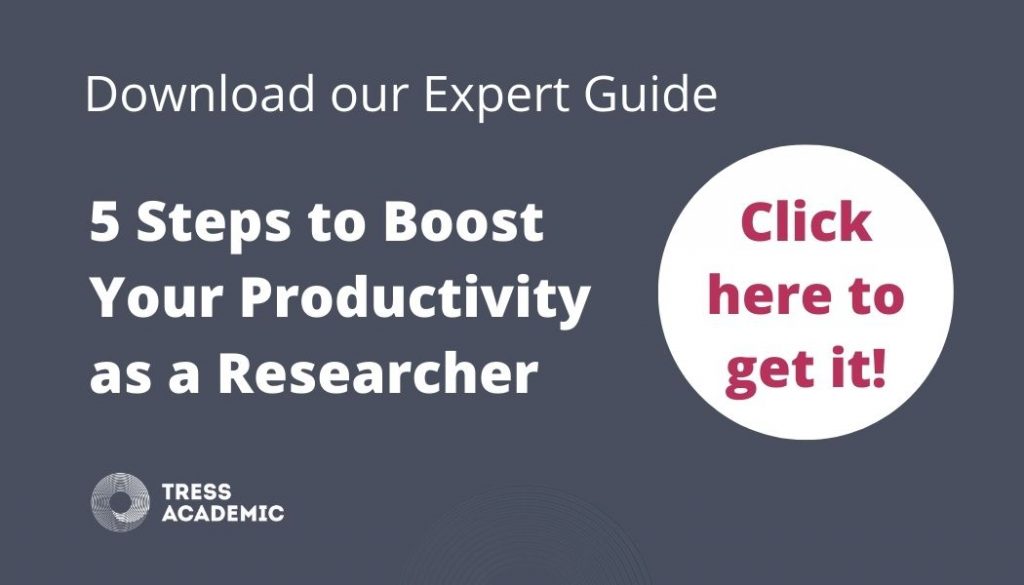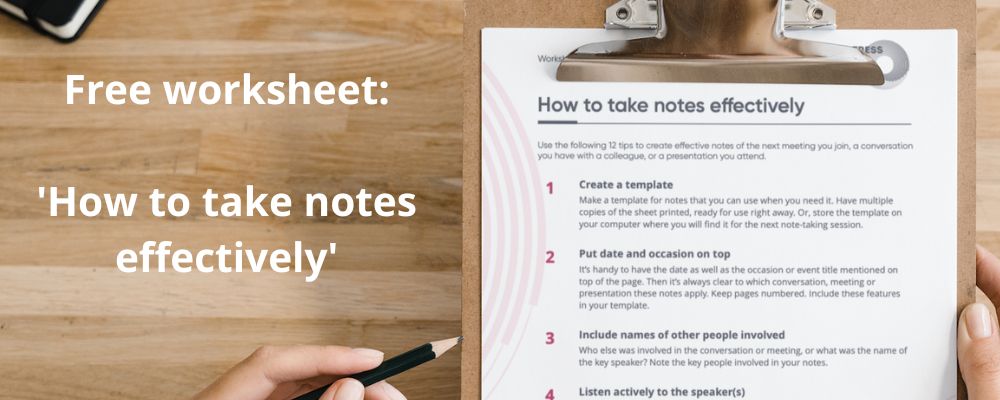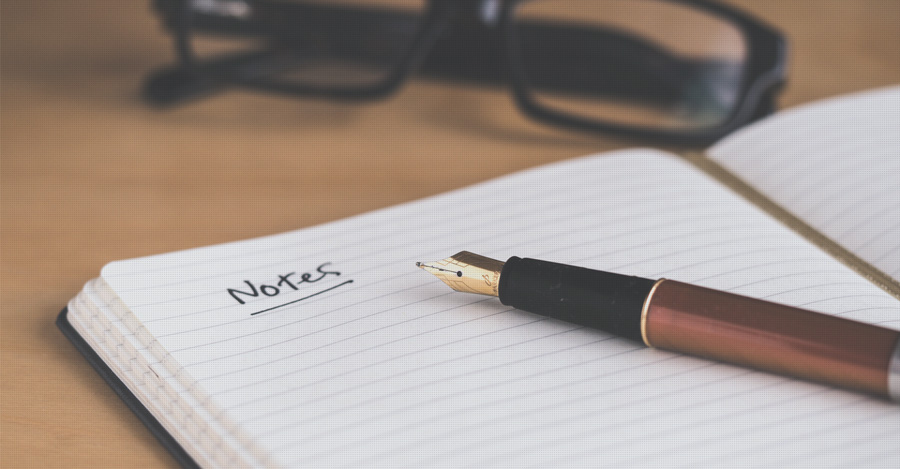Taking notes from meetings, conversations or presentations is a very effective way to benefit from what you’ve heard and commit it to memory and practice. You may think it is not necessary because you will remember what’s being said anyway, but here, we’ll explain why using note-taking techniques will help make your academic life so much better, and we’ll suggest some tips for good note-taking.
Maybe you belong to the group of academics who remember everything that they hear, including what’s discussed in meetings. You might think taking notes is an expendable exercise and can be omitted in everyday academic life. If so, you are blessed–we’ve never belonged to this group that “can-remember-everything.”
In our academic and professional lives, we’ve noticed that many people assume they belong to this group, but they don’t. Many people simply forget what they heard after a while, or cannot recall what exactly has been discussed or agreed upon in a conversation. And then a lot of extra effort and time is spent on getting back to what has been said.
We take notes from every meeting or conversation we have. No, we were not born ‘note-takers,” but over the years it has proven very beneficial. We also recommend you consider taking notes when sitting in a meeting with project partners, listening to a relevant presentation in your field, having a meeting with your supervisor or your boss, or simply when you have an important phone or video call.
Note-taking in this context doesn’t mean writing down everything in full detail, but is the process of reviewing, connecting and synthesising ideas from a conversation, a meeting, or a lecture. You don’t need to write down everything–you want to capture the key message of a conversation to look back on it and review it later. Note-taking is not only about remembering, but also about learning something and being able to take action from it.
Let us introduce five reasons why we think note-taking makes sense to you and offer you a free worksheet, “How to take notes effectively,” First why you should take notes:
1. You won’t forget
Whatever is written down is written down and the chance that you’ll forget it is very low. This is one of the biggest benefits of taking notes: They help you to remember even days or weeks later after the conversation took place. You might have heard many other things since and had many meetings, but if you have effective notes taken from a meeting, you’ll be able to recall the essence of the meeting and act accordingly.
2. You will understand better
When capturing what you hear in a meeting, presentation, or video call, you must rephrase and condense the content as you cannot write everything down word for word. In this process of rephrasing the content, you’ll realise immediately if you understood correctly what’s being said. If you realise that you haven’t understood everything, then you still have a chance to ask or attempt to understand better. It is like a control process.
3. You will focus
Writing is an active process which keeps you awake and alert. You need to follow the conversation to capture the main essence. When you are taking notes, you’re actively involved with what you’re hearing. Taking notes is particularly helpful if the notes are handwritten as opposed to, for example, typing them on a laptop. When typing notes, you are more inclined to longhand notes and try to capture verbatim content. Fried (2008) showed that verbatim notes are often shallow, less to the point, and less helpful for learning because the ture content of what has been said is not reflected. Handwritten note-taking requires reflection and brevity, which means focusing on the key content. It also makes it easier to capture visual content such as graphs, charts and illustrations. Handwritten notes are faster to start as you don’t have to fiddle with anything other than pen and paper. But handwriting is a slow task, so you have to be more selective in what you’re taking note of. Luo et al. (2018) have found that the mental processes involved in writing by hand means the note takers have a deeper understanding of the material. Now, don’t get us wrong, we’re not advocating against using computers to take notes as we do it as well, but sometimes handwritten stuff is simpler and more effective, so it’s worth considering!

4. You will learn by heart
The process of writing something down stimulates your brain to remember the content. Sometimes, when you write down only a few words or numbers, e.g. a phone number or an address, you learn it by heart. Later, you might not even need to come back to your notes because you can remember what you’ve written. But if not, you still have the notes as a backup.
5. You will keep track
Note-taking is like keeping a diary of important points, agreements or lessons learned from meetings, presentations, or conversations. When you regularly have meetings, like with your supervisor, and keep notes of all the meetings, you can better track the progress of the discussion and see how the single steps you’ve agreed to connect with each other.
Conclusion
Note-taking is an indispensable activity in any busy academic’s life. You have too many important meetings and conversations, and you listen to too many valuable presentations and pieces of research news—it would be sad if all this valuable information would get lost. And it will substantially increase the benefit to your use of time and the quality of your work if you take notes regularly. It is not an additional task, but rather one step in processing important information in an effective way. Check out our free worksheet “How to take notes effectively.”

Related resources:
- Worksheet “How to take notes effectively”
- Agarwal, A. 2021. 6 Benefits of Note Taking. Learningground Blog.
- Edugage, 2022. 10 Benefits of Writing Notes by Hand. Edugage Blog.
- Fried, C.B. 2008. In-class laptop use and its effects on student learning. Computers & Education 50 (3), 906-914.
- Kiewra, K.A. 2019. 7 tips on how to take better notes. The Conversation. Luo, L., Kiewra, K.A., Flanigan, A.E. et al. 2018. Laptop versus longhand note taking: effects on lecture notes and achievement. Instructional Science 46, 947–971.
More information
Do you want to become a more efficient researcher? If so, please sign up to receive our free guides.
Photo by David Travis on unsplash.
© 2022 Tress Academic
